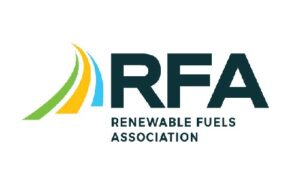GEMA urges Petroleum Minister for support to ensure survival of grain ethanol plants without Long Term Offtake Agreements

The Grain Ethanol Manufacturers Association (GEMA) has requested urgent intervention from Petroleum Minister Hardeep Singh Puri, highlighting challenges faced by grain ethanol plants lacking Long Term Offtake Agreements (LTOAs). Many plants received only 50-64% of expected allocations, risking financial instability. GEMA seeks increased ethanol blending targets, noting that sugarcane-based producers have alternate product options, while grain ethanol plants rely solely on ethanol sales for viability.
The Grain Ethanol Manufacturers Association (GEMA) has written a letter to Union Petroleum and Natural Gas Minister Hardeep Singh Puri, highlighting the challenges faced by grain ethanol plants that do not have Long Term Offtake Agreements (LTOAs) with oil marketing companies (OMCs). The letter calls for immediate intervention to support the industry and prevent many plants from falling into financial instability.
In the letter, GEMA outlines that during the Ethanol Supply Year (ESY) 2024-25, many plants have received only 50-64% of the allocation in Q1 and Q2. This significant reduction in sales jeopardizes the viability of our operations, putting us at risk of becoming nonperforming assets (NPAs).
The letter emphasizes that many of these plants were established with the support of government schemes, including loans and interest subventions, based on the assumption of a consistent demand for ethanol under the Government of India’s Ethanol Blended Petrol (EBP) Programme. These facilities were developed to produce ethanol specifically for blending into fuel, with assurances of LTOAs to secure their financial health.
The letter references office memorandum of the Department of Food and Public Distribution (DFPD) dated May 2, 2022, which emphasized on the the concept of Tri-Partite Agreement and assured purchase of ethanol by OMCs.
GEMA claims that under the current allocation system, we are struggling to meet our financial obligations. Plants are restricted to producing ethanol exclusively for the EBP, as per our environmental clearance (EC) under the B2 category. The OMCs remain our sole buyers, and we are unable to manufacture any other products to offset our financial burdens.
The association urged the minister to increase the blending percentages to ensure that the ethanol they produce can be fully accommodated. GEMA said, “Revise the allocation preferences, as the sugar industry, which lacks LTOAs, is currently given priority, leaving grain ethanol producers at a disadvantage, moreover the ethanol producers manufacturing ethanol from sugarcane have the option of manufacturing sugar, whereas grain-based ethanol industries like us are left with the only option of producing ethanol to meet the requirement of the EBP.”
OMCs have allocated around 837 crore litres of ethanol against 970 crore litres of offers submitted by manufacturers across the country for ESY 2024-25 – Cycle 1. OMCs had invited tenders for the supply of 916 crore litres of ethanol for ESY 2024-25.
















